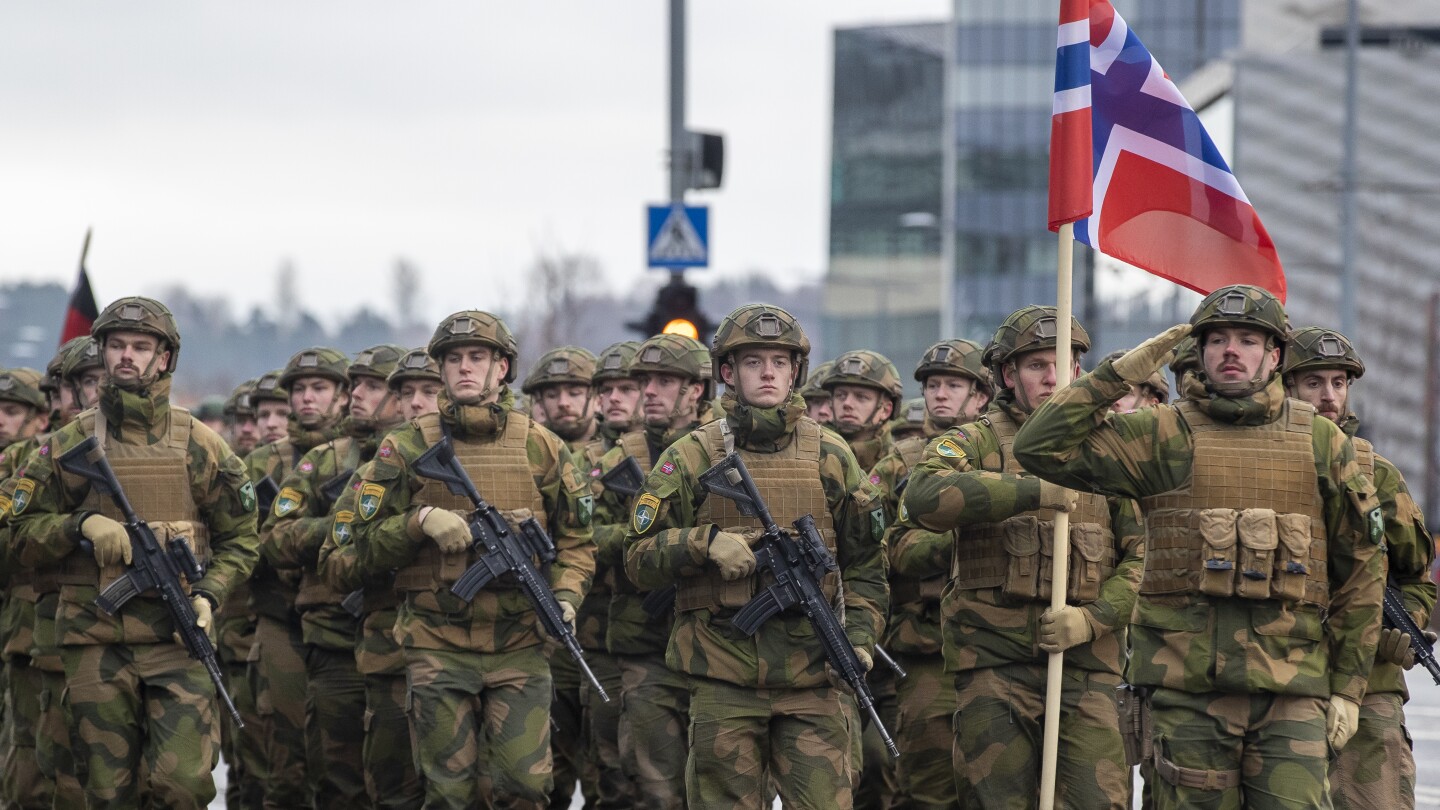Plain Jane
Just Plain Jane
March thread:

 apnews.com
apnews.com
WORLD NEWS

FILE - Norwegian soldiers march during a military parade ceremony marking the 105th anniversary of the Lithuanian military on Armed Forces Day in Vilnius, Lithuania, Saturday, Nov. 25, 2023. Norway is to increase the number of conscripted soldiers from the present 9,000 to 13,500, the Norwegian government said Tuesday, April 2, 2024. (AP Photo/Mindaugas Kulbis, File)
Read More
Updated 5:28 AM EDT, April 2, 2024
COPENHAGEN, Denmark (AP) — Norway is to increase the number of conscripted soldiers from the present 9,000 to 13,500, the Norwegian government said Tuesday.
“We must have enough people with the right skills at the right time,” Defense Minister Bjørn Arild Gram said. “We will need more people with professional military expertise going forward.”
The country’s armed forces will see a gradual increase in the number of conscripts for initial service each year, Arild Gram said, adding that several billion kroner (several hundred million dollars) will be invested in the Norwegian Armed Forces’ facility at Terningmoen, north of Oslo, where the NATO member will gather all new recruits. He did not specify precisely how much oil-rich Norway will spend.
Norwegian news agency NTB said the aim was to reach 13,500 conscripts by 2036.
The move by the Scandinavian NATO member comes after neighboring Denmark last month said it wants to increase the number of young people doing military service by extending conscription to women and increasing the time of service from four months to 11 months.
The Danish government wants to increase the number of conscripts by 300 to reach a total of 5,000.
Both Denmark and Norway are staunch supporters of Ukraine in its war against Russia’s invasion.
Norway follows its neighbor Denmark in planning an increase in conscripted soldiers
Norway is to increase the number of conscripted soldiers from the present 9,000 to 13,500. Norwegian Defense Minister Bjørn Arild Gram said Tuesday that “we must have enough people with the right skills at the right time.”
WORLD NEWS
Norway follows its neighbor Denmark in planning an increase in conscripted soldiers
FILE - Norwegian soldiers march during a military parade ceremony marking the 105th anniversary of the Lithuanian military on Armed Forces Day in Vilnius, Lithuania, Saturday, Nov. 25, 2023. Norway is to increase the number of conscripted soldiers from the present 9,000 to 13,500, the Norwegian government said Tuesday, April 2, 2024. (AP Photo/Mindaugas Kulbis, File)
Read More
Updated 5:28 AM EDT, April 2, 2024
COPENHAGEN, Denmark (AP) — Norway is to increase the number of conscripted soldiers from the present 9,000 to 13,500, the Norwegian government said Tuesday.
“We must have enough people with the right skills at the right time,” Defense Minister Bjørn Arild Gram said. “We will need more people with professional military expertise going forward.”
The country’s armed forces will see a gradual increase in the number of conscripts for initial service each year, Arild Gram said, adding that several billion kroner (several hundred million dollars) will be invested in the Norwegian Armed Forces’ facility at Terningmoen, north of Oslo, where the NATO member will gather all new recruits. He did not specify precisely how much oil-rich Norway will spend.
Norwegian news agency NTB said the aim was to reach 13,500 conscripts by 2036.
The move by the Scandinavian NATO member comes after neighboring Denmark last month said it wants to increase the number of young people doing military service by extending conscription to women and increasing the time of service from four months to 11 months.
The Danish government wants to increase the number of conscripts by 300 to reach a total of 5,000.
Both Denmark and Norway are staunch supporters of Ukraine in its war against Russia’s invasion.
